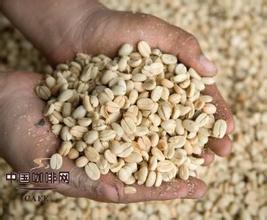A brief introduction to the taste and flavor of coffee beans grown in Yejashifeichel Manor
A brief introduction to the taste and flavor of coffee beans grown in Yejashifeichel Manor
Sunburn Yega Fischer G1 English name: Ethiopia Grade One Kochere Dry Process Commodity Specification: 227g (half pound) Coffee country: Ethiopian Coffee Farm (Cooperative): Kocher Kochere Coffee Grade: G1 Coffee Variety: Heirloom Varietals Ethiopian traditional varieties planting height: altitude 1700m raw bean treatment method: Dry Process sun international score: 88.6baking degree: medium and shallow baking packaging Method: one-way valve Kraft paper (with zipper) packaging suggested to use utensils: hand flushing, Smart cup, American drip filter, siphon, French pressure, Philharmonic pressure, mocha pot and other utensils (free grinding Recommended brewing temperature: 88-93 ℃ glass test reference: dry aroma: fermented wine, fruity aroma. Wet fragrance: ripe peaches, melons, coffee fruits, taffy sips: sweet and sour, fruity after nose, nutty
Dry aroma: fermented wine, fruity aroma.
Wet fragrance: ripe peaches, melons, coffee fruits, taffy
Sipping: sweet and sour, fruity after nose, nutty
In September 1974, a group of young and strong officers formed the "Coordination Committee of the Army, Police and Local Forces" (that is, DERGUE, meaning SHADOW, and later generally referred to the junta and Mengistu regime) to launch a military coup, overthrew the Haier Selassie government, and announced the end of monarchy and the establishment of a "interim junta." In November, the "interim military government" was changed to "interim military Administrative Council". In December, the interim military Administrative Council declared Ethiopia a "socialist country", nationalizing land, financial and financial institutions and industry. [3]
During the Mengistu dictatorship
In February 1977, Lieutenant Colonel Mengistu Haier Maryam (MENGISTU HAILE MARIAM) launched a military coup and served as Chairman and head of State of the interim military Administrative Council. In 1979, the Ethiopian Labor people's Party Organizing Committee, mainly composed of soldiers, was established to implement an one-party system. In 1984, the Ethiopian Workers' Party was formed according to the Soviet Communist Party model. In September 1987, Mengistu announced the dissolution of the "interim military Administrative Council", the end of military rule, the establishment of the "people's Democratic Republic of Ethiopia" and the establishment of a new parliament, with Mengistu as president and head of government.

Important Notice :
前街咖啡 FrontStreet Coffee has moved to new addredd:
FrontStreet Coffee Address: 315,Donghua East Road,GuangZhou
Tel:020 38364473
- Prev

History of Jadeite Manor Flavor description of Coffee beans A brief introduction to the texture Grinding scale
A brief introduction to the Flavor description of the Historical Coffee beans and the Grinding scale of the Jadeite Manor is located in the Bokui Mountains of Panama. The mountain area of Bokui is 1200 meters above sea level, where the famous Balu volcano is located. Mild climate, fertile young volcanic soil, appropriate rainfall and changeable microclimate make the Bokui Mountains have the reputation of coffee paradise manor coffee called Estate-Grown
- Next

A brief introduction to the taste characteristics, price and flavor of coffee beans in Ireta Manor.
In fact, Panamanian coffee has not received due recognition and attention in the boutique coffee market. Good Panamanian coffee has always been used by unscrupulous businessmen to imitate Hawaiian kona coffee and even Jamaican Blue Mountain coffee. Panamanian coffee generally belongs to the low and medium price, but its performance in the cup is often not.
Related
- Does Rose Summer choose Blue, Green or Red? Detailed explanation of Rose Summer Coffee plots and Classification in Panamanian Jade Manor
- What is the difference between the origin, producing area, processing plant, cooperative and manor of coffee beans?
- How fine does the espresso powder fit? how to grind the espresso?
- Sca coffee roasting degree color card coffee roasting degree 8 roasting color values what do you mean?
- The practice of lattes: how to make lattes at home
- Introduction to Indonesian Fine Coffee beans-- Java Coffee producing area of Indonesian Arabica Coffee
- How much will the flavor of light and medium roasted rose summer be expressed? What baking level is rose summer suitable for?
- Introduction to the characteristics of washing, sun-drying or wet-planing coffee commonly used in Mantenin, Indonesia
- Price characteristics of Arabica Coffee Bean Starbucks introduction to Manning Coffee Bean Taste producing area Variety Manor
- What is the authentic Yega flavor? What are the flavor characteristics of the really excellent Yejasuffi coffee beans?

